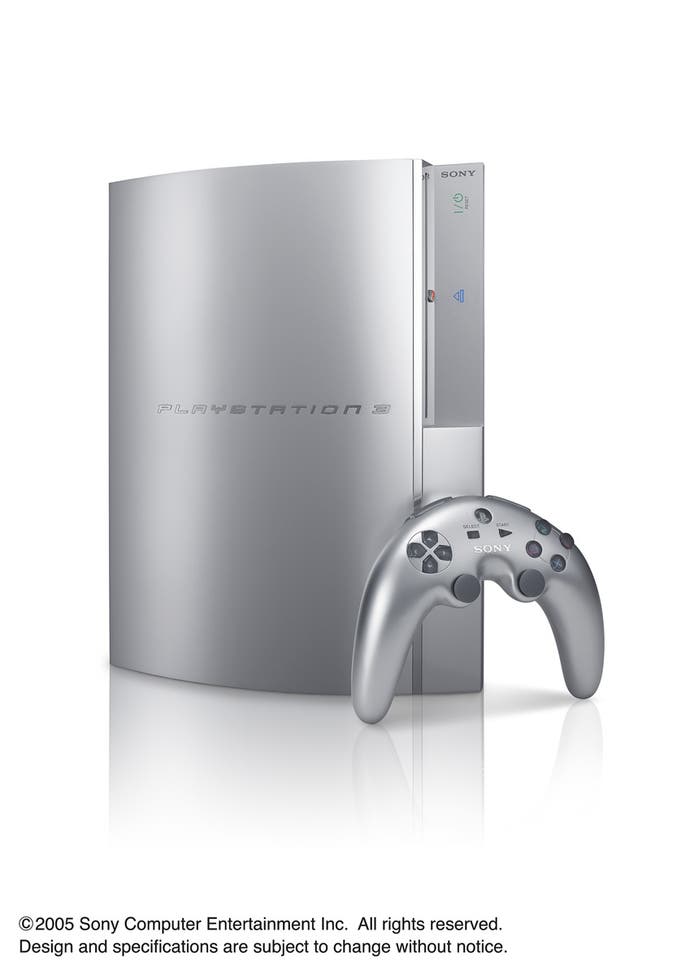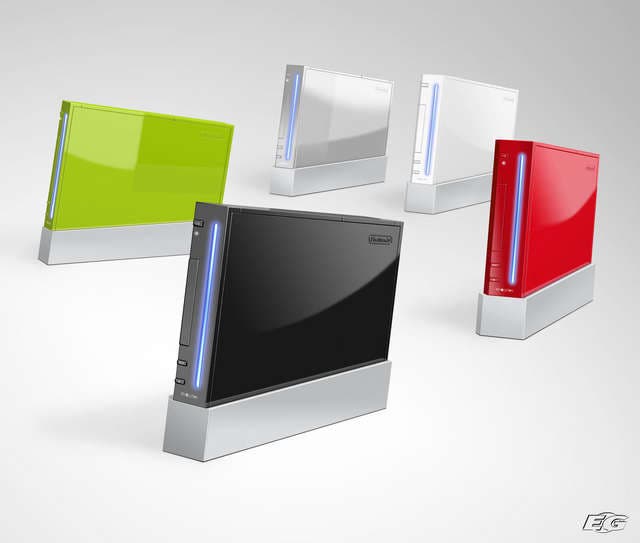2005 UK Sales Review
Part Three: PC, Xbox 360, and the year ahead.
Publisher power
Moving away from individual formats, yet again Electronic Arts completely dominates the UK charts, selling an incredible 10.01m units during the year, and claiming 18.2 per cent of the units in the process. In value terms, the figures are even more telling, with £244.08m generated at retail, representing some 20.1 per cent of the market, or over 20 pence in every pound spent on software - and that's including utilities, remember, so if Chart-Track stripped out all the non-games software, that figure would be a few per cent higher.
Activision leapfrogged Take Two to claim the number two by value with 7.5 per cent share (number three by units, 3.9m), with Sony jumping two places to number three to claim seven per cent share by value (number five by units, 3.4m). THQ had its best year ever in the UK, leaping three places to number four with 6.4 per cent of the value (number two by units with 7.2 per cent, 3.9m sales), and Ubisoft entered the big league, up three place to five with 6.3 per cent (number four by units, 7 per cent, 3.8m sales).
A quiet year by Microsoft's standards on PC and Xbox was only partially rescued by the 360 launch, and it's no surprise therefore to see the US giant drop two places to sixth overall, with 5.4 per cent share of the value pie (13th by units, 1.55m sales). Take Two's standing dropped five places to seventh by value, showing its reliance on a home console version of GTA - the share this time was 4.9 per cent (also seventh by units, 2.5m sales).

Konami, meanwhile, jumped four places into the number eight spot, with 4.2 per cent (ninth by units, 1.9m sales), but Vivendi-Universal Games slipped three places to ninth, with 4.2 per cent by value (sixth by units, 2.6m sales).
LucasArts made the biggest jump of anyone, leaping seven places to number ten on the back of a Star Wars-fuelled year, claiming 4.0 per cent by value (11th by units, 1.7m sales). Sega's gradual revival continued in 2005, up to number 11 with 3.6 per cent by value (eighth by units, 2.1m sales), but Nintendo's overall standing continues to slide, down to number 12 with 3.5 per cent by value (and 12th by units also, 1.6m sales).
Beyond that, Atari slipped to 13th (discounting Symantec, since they're obviouslynot a games publisher), meaning 2.4 per cent by value, number ten by units with 3.2 per cent, or 1.7m sales. Codemasters remained at number 14 (1.8 per cent by value, 2.0 per cent by units, 1.1m sales), Eidos moved up to 15 (1.4 per cent by value, 2.0 per cent by units, 1.1m sales), Capcom moved up to 16 (1.4 per cent by value, 20th by units, 0.73m units), while Midway hover on the fringes just inside the top 20 (0.9 per cent by value, 1 per cent by units, 0.54m sales). Interestingly, NCsoft (0.3 per cent by value and units, 0.1m sales) marked its arrival for the first time just inside the top 30 and looks set to improve in the coming years, particularly given that a lot of its revenues are direct from the consumer rather than funnelled through retailers.
Can Nintendo and Microsoft challenge the PlayStation?

The most evident thing about the 2005 Chart-Track report is the extent of the dominance of the PS2 (and now the PSP) in the UK market, and how long Sony has been the clear leader in terms of the formats it produces. Even a cursory glance of the figures illustrates that Sony has completely dominated ever since the PlayStation launched back in September 1995 - and its grip on the UK market has become stronger every year.
But how did this happen? How did such seemingly mighty competitors as Sega and Nintendo get blown away so dramatically in the UK, and how did Sony do what no other platform holder had done before and dominate two successive console generations - both here and overseas?
Mere months after its September 1995 UK launch, the £299 machine outstripped software and hardware sales of the ageing Megadrive and SNES, but it was the effortless ease with which it brushed aside Sega's £399 Saturn that was more impressive, selling more than three times as many games in 1996 when the machines were competing head to head. While Sony managed to scoop 20 per cent of the market in 1996, the Saturn trailed in with just 5.7 per cent. The lure of PlayStation exclusive titles such as Formula 1 (amazingly the best-selling console title by far of '96), Resident Evil, Tekken, Ridge Racer, and vastly superior versions of Tomb Raider and Die Hard Trilogy made it unstoppable.
The following year in 1997, Nintendo put up a better fight, with N64 game sales carving 10 per cent of the value of the market (spearheaded by huge demand for Super Mario 64), but by then Sony was already commanding 31.7 per cent of the market value and getting stronger, thanks to key console exclusives such as Tomb Raider 2 and Final Fantasy VII, which were worldwide phenomena. After that Sony left the competition for dust with unprecedented third party support. Nintendo inched up to 12 per cent in 1998 (boosted by some fantastic exclusives like GoldenEye and Zelda: Ocarina of Time), but that was as good as it has been for the Big N ever since.

Sega's Dreamcast launched in a blaze of publicity in 1999, but despite the lure of arcade perfect ports such as The House of the Dead II, Virtua Tennis and exclusives like Shenmue, MSR and Sonic Adventure, not to mention online gaming, a cheaper price point (£199) and by far the best visuals ever seen on a home system, the console still only managed to command 5.3 per cent of the software market value at its peak in 2000, with many loyal users holding back for the PS2 instead. Many of the 600,000 or so that bought the Dreamcast in the UK still insist it's a better machine than the PS2, but that's all rather academic now, sadly, and many will point to the system's poor marketing and the failure to command key third party partners such as Electronic Arts as the real reason for its failure.
The even-cheaper GameCube (launched at the astonishing price of £129) couldn't break the Sony stranglehold, either, and thanks to late arrival of the machine (some seven months after the US launch) numerous delays for PAL releases (Metroid Prime being a classic example, and Animal Crossing an even more jarring one), the timing of key software was badly managed and the console's best software sales performance was six per cent (by value) in 2003. On that basis, the Xbox has been by far the PlayStation's strongest challenger, and the head start enjoyed by the 360 appears to be Microsoft's best chance of overturning this vice-like grip on the market.
Whether the 360 can capitalise on its strong start remains to be seen. Certainly, the format got off to a good start in the US and Europe, but many would argue that it needs true next generation titles in the realm of Oblivion to really convince people to buy it, rather than wait for the new Sony and Nintendo formats later in the year. Microsoft's continuing problems with Japan is also a cause for concern for the company, and with E3 just around the corner, the picture should start to become clearer as to whether the machine really has the software lined-up to make it an irresistible purchase. For now, the games industry stands at a rather intriguing crossroads that could determine the future direction of the medium.
All data was provided with the kind permission of ELSPA. The 2005 Annual report is produced for ELSPA by Chart-Track and the figures stated in the report and this article represent an estimated 90 per cent of the total software sold in the UK. Around 6000 UK retailers are surveyed via the EPos system, thought to be one of the most accurate means of generating chart data anywhere in the world.
This report, and many others are available via subscription only, and any enquiries should be directed to James Mulgrue at ELSPA - james.mulgrue@elspa.com 020 7534 0580.








